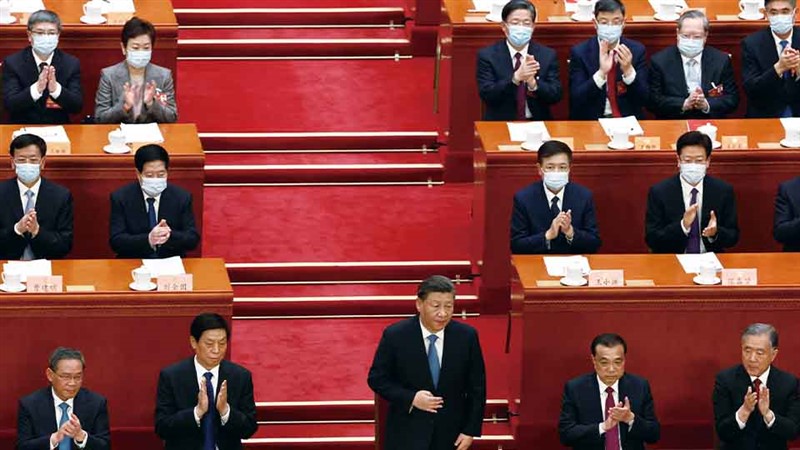Banker's Digest
2023.05
The reform of financial regulation in China as a response to a potential crisis

A series of relevant changes also have taken place in the Chinese state apparatus. The most significant of these institutional changes may be the creation of a new national regulatory body that will oversee all areas of the financial industry. Beyond the continuity of Xi Jinping remaining as China's president for an unprecedented third term, and the announcement of a growth target lower than what most analysts expected and even lower than that of 2022 (5% compared to 5.5%), a series of relevant changes also have taken place in the Chinese state apparatus. The most significant of these institutional changes may be the creation of a new national regulatory body that will oversee all areas of the financial industry. The new regulatory body will assume responsibility for the financial protection of investors that was previously held by the Banking and Insurance Regulatory Commission, as well as take over the supervision of financial holdings from the People's Bank of China. There are a number of reasons why the announcement of this new agency deserves our attention. First of all, China's financial sector is by now the largest in the world with some $60 trillion in assets, equivalent to around 340% of the nation's gross domestic product. A number of Chinese banks are near the top of lists of the largest globally systemic financial institutions, a sign of their increasing interrelations with the rest of the world's financial system. Chinese development banks and other state institutions have provided massive cross-border loans, mostly through the Belt and Road initiative. The sharp reduction in these loans has already had important consequences for emerging countries, especially those most dependent on Chinese financing. In this sense, any problem in the Chinese financial system could have devastating consequences for many other countries, since the stock of accumulated loans continues to be high, even if the flow is no longer so. Second, the recent decision to concentrate regulatory and supervisory power in a single institution has not been very transparent about what the role of the government (the State Council) will be with regard to the Party and, specifically, President Xi Jinping. This is important since the trend remains the same: reduce the executive power and concentrate it to the Party. On the other hand, beyond the fact that the Banking and Insurance Regulatory Commission will be forced to dissolve, there are also rumors that the central bank staff will suffer salary cuts that is part of a broader objective of reducing government spending by 5%. The reductions in pay and staffing may be intended to free up funds for the authorities to hire qualified staff for the newly reconstituted regulatory body. For many, creating a new institution at a time when the Chinese economy is struggling to recover from the fallout from COVID may seem like a luxury, or even a whim. It is important to note that internationally, centralized regulatory and supervisory agencies tend to be created when systemic risk is at its highest and a potential restructuring of financial systems may be warranted. The question is whether China is in a situation with a brewing financial crisis that may need to be tackled swiftly and effectively. Without a doubt, what is happening with Silicon Valley Bank and with Credit Suisse does not leave us alone in terms of probabilities. The increase in systemic risk in the Chinese financial system comes not only from potential contagion from banks in the US or Europe, but also from domestic factors. Firstly, China's debt level has only increased since Xi Jinping declared a 'crusade' against the so-called shadow banking in the second half of 2017. In fact, the financial sector is increasingly complex marked by pervasive off-balance sheet positions. In addition, payment defaults by several real estate developers over the past year and a half have hurt Chinese financial institutions. The sector's woes have not yet ended but have only been cushioned by state intervention by lifting borrowing limitations for the developers. The previous tightening of the limitations has triggered the bankruptcies of some developers, starting with the largest in the world, Evergrande in 2021. And finally, in the past three years, local governments have had to bear the bulk of healthcare expenses related to the zero COVID policy, while seeing land sales - their main source of income – plummet due to the crisis in the real estate sector. In fact, in the third quarter of 2022, all Chinese provinces were running fiscal deficits and had to be supported by the central government. Although the reopening of the economy should help improve the financial situation of local government, it remains very fragile. Concentrating regulatory and supervisory powers in a small but agile and high-level agency with direct access to the State Council and possibly Xi should make coordination much easier and, most importantly, faster at times of potential financial distress. Another key advantage of this regulatory structure is that it could make it easier to link any potential decision to restructure a particular financial institution with funding to finance the move. When China restructured its largest banks in the early 2000s, it tapped foreign reserves as a funding pool for their recapitalization, given their sizeable amount at the time. Right now, with a financial sector that is so much bigger, the cost of a restructuring would certainly be much higher. All in all, the National People's Congress has again delivered important news for China and the world. Many have focused on Xi's third term and the government's setting of an underwhelming annual economic growth target, but the new centralized financial agency may be just as important if it is indeed a sign that Beijing is getting ready for a major cleanup of its financial sector, which has ballooned in size and influence on the rest of the world.



